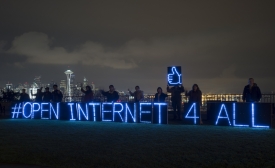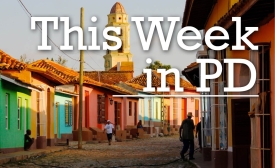internet access
In another step towards diplomacy, Cuba has opened its doors to the outside world by making an agreement with Google. Users in Cuba will now have the GGC to assist in content storage from Google owned services. Cubans can take full advantage of popular services, such as Gmail and YouTube, that can be used on servers owned by ETECSA, the state’s telecommunications company.
David Rothkopf talks with Eric Schmidt, executive chairman of Alphabet, Inc., who accepted this year’s Diplomat of the Year award on behalf of Google. The conversation at the awards dinner was centered on how the massive gains in connectivity are changing the landscape of diplomacy. Within just a few years, everyone on this planet may be connected to the internet.

If the inclusion of Internet freedom under human rights is contentious, digital rights might be the way forward.
Non-Governmental Organizations (NGOs) are starting to provide broadband hotspots to the communities that are affected, [...] With hotspots, they can actually put targeted information on Web services like where to find asylum, medical assistance, education for children, that side of things. It also gives migrants a secure communications channel to let families know they are safe.
Facebook Inc launched a stripped down version of its popular Messenger app for emerging markets on Monday as it seeks to expand its international footprint. Messenger Lite, which uses less data and is designed to work in areas with slower internet connections, will roll out in Kenya, Tunisia, Malaysia, Sri Lanka and Venezuela. Facebook said it will expand to other countries in the coming months.
The internet builds on and enlarges networks, sometimes transforming them into webs of knowledge. This ultimately brings power to civil society, which gains leverage over the political decision-making process, and at times this even translates into how governments decide to shape their international alliances. Thus through cyberspace, foreign policy is becoming more accessible to the individual.

Showcasing the public diplomacy behind U.S. President Barack Obama's visit to Cuba.
In a setback for Facebook, Indian regulators have banned free mobile data programs that favor some Internet services over others. The regulations, issued Monday after months of intense public debate over how to extend the Internet to India’s poorest citizens, effectively block Facebook’s controversial Free Basics program in India.







